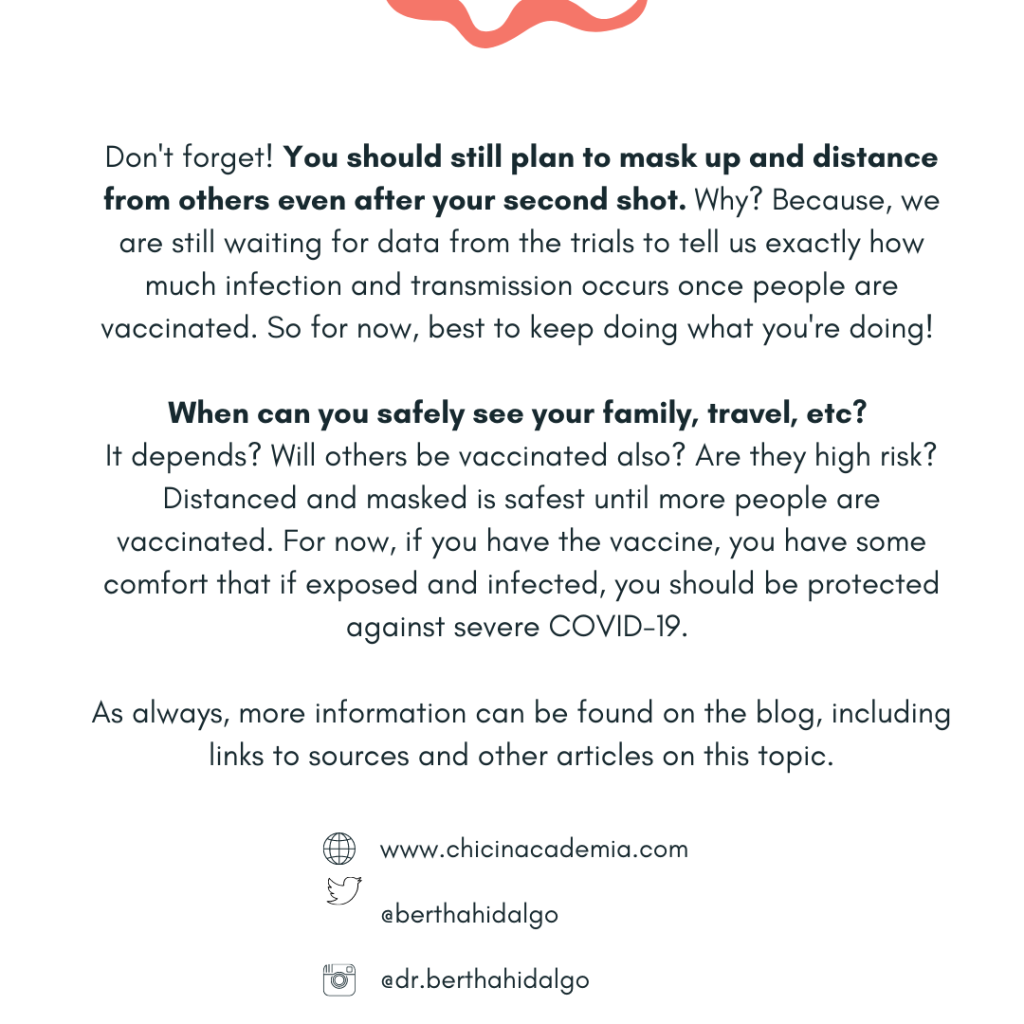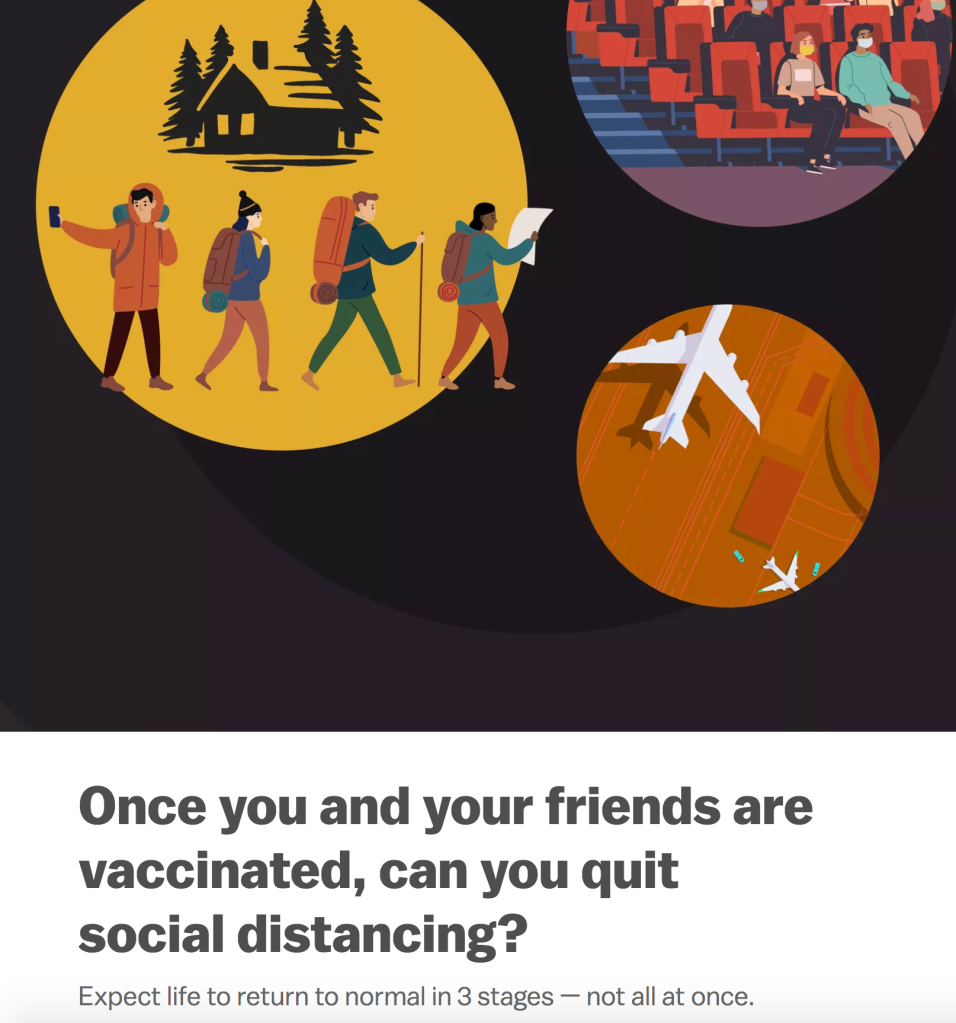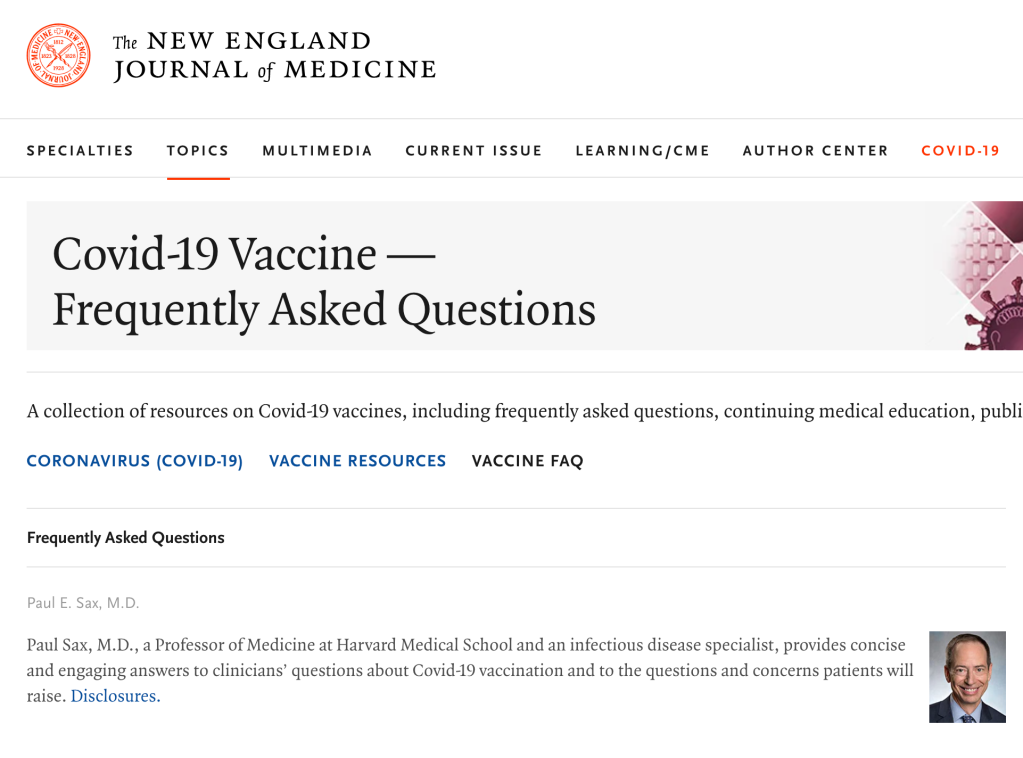
Many states have launched their vaccination programs, which is both exciting and confusing. Who, where, when, how, many people are asking. There is confusion about the timing, who is eligible, where to sign up. In some cases, overwhelmed phone hotlines or websites. So, in an effort to inform and dispel myths, this week’s post is dedicating to bringing together some of the information I have read about or heard about so far.
Who: Many states have created tiers or phases to determine who gets vaccinated when. Most plans were created following the CDC ACIP Recommendations for COVID-19 Vaccine Prioritization. For example, in Alabama, we are currently in Phase 1a, which includes ‘Healthcare workforce and long-term care patients and workers’. Additional phases include:
Phase 1b – Essential workers at highest risk for work related exposure and persons in identified age groups at risk for COVID-19 associated morbidity and mortality
Phase 1c – Persons in identified age groups at risk for COVID-19 associated morbidity and mortality not included in Phase 1b; persons with high risk medical conditions; essential workers not recommended for vaccination in Phase 1b
Phase 2 – All persons in age groups not previously recommended for vaccine (ages 16‐64) and general population not included in earlier phases
Other states may be calling their prioritization schedule something different, using ‘tiers’ instead of ‘phases’ for example.
Where/When: Regardless, it’s important to listen to the news, read the news paper, check social media (trusted sources only), call your health department or check their website, etc., to get accurate information about the timing and eligibility for each person. All states reported their prioritization plan in advance and can be found here if you’re interested.
How: Many people want to know what they need to do before getting their vaccine. In general, I recommend learning as much as you can about the COVID-19 vaccine. If you still have questions about what it does or does not do, check out my #sciencesayssunday posts on Instagram or previous blog post on the topic here. Jatati Sharma also put together a nice Instagram post about things she has heard from people about the COVID-19 vaccines:
What: What exactly happens once you get the vaccine? What should you expect? It has not been uncommon to hear that some people have injection site soreness. In some cases, redness around the injection site. In other cases, some fever, tiredness and aches. All of these are expected and are no cause for alarm. The CDC does recommend that if any of these symptoms last for more than a day, or you experience other symptoms that are worrisome to you, you should definitely reach out to a doctor to get additional guidance about what to do next. So far, the data suggest that serious side effects are very rare. In the case of extreme anaphylaxis, approximately 3780 out of 1.89 million people have had severe allergic reactions after the vaccine.
Last note: There has been A LOT of talk about 1 dose vs doses. Until we have more information about this, CDC and Fauci, for example, continue to operate under the plan of a two-dose vaccination. If anything changes, I’ll be sure to let you know. So, if you’re offered a second dose, take it. There’s also been a lot of talk about whether or not you need to mask after your second dose. Y’all. Please don’t listen to Rand Paul. Right now we don’t know how much infection or transmission will be reduced with either vaccine, or whether we will need an annual shot, etc. SO, for now, continue to mask, watch your distance, etc, with the comfort of knowing that if you are vaccinated, you are less likely to develop severe covid.

Two great articles were published this week on the topic of vaccines and what happens now. One from Vox,

and the other written by Dr. Paul Sax in the New England Journal of Medicine. This FAQ does state that “pre-vaccine administration of these drugs [analgesics and antipyretics such as acetaminophen or ibuprofen]” is not recommended “as they could theoretically blunt vaccine-induced antibody responses”, however it is unclear where this guidance originates. Stay tuned for more on this. IF you did take a pain reliever prior to your COVID-19 vaccine, don’t panic. A few epidemiologists are looking more into this and will report back as soon as we know more! Dr. Sax pointed us to this language from the CDC (great info on this page, btw): “However, routine prophylactic administration of these medications for the purpose of preventing post-vaccination symptoms is not currently recommended, as information on the impact of such use on mRNA COVID-19 vaccine-induced antibody responses is not available at this time.” I know this is confusing. My gut tells me that, until I can share more concrete information with you, perhaps withhold from taking Tylenol or Advil prior to vaccination, but again, don’t panic if you already did prior to getting your COVID-19 vaccine.

Both are essential reading as we move into the next phases of this COVID-19 vaccine rollout.
For now, hang in there. Continue to mask, wash your hands, watch your distance, and avoid indoor/poorly ventilated space.